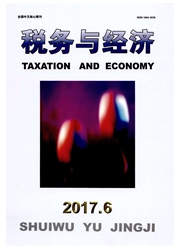

 中文摘要:
中文摘要:
以新进税务人员为被试样本,建构组织社会化、核心自我评价、心理授权与进谏行为之间关系的理论模型,并检验组织社会化、核心自我评价、心理授权与进谏行为混合作用的内在关系。研究表明,组织社会化有助于新进税务人员进谏行为的产生;心理授权在显著影响新进税务人员进谏行为的同时具有显著的中介效应,且有调节的中介效应显著;核心自我评价显著影响进谏行为,在具有显著的调节效应的同时还具有显著的中介调节作用。研究证明,混合效应模型能更好地解释组织社会化对进谏行为的作用机理,同时也拓展了组织行为学相关理论的研究角度。
 英文摘要:
英文摘要:
Based on domestic and abroad research,the theory model about relationship among organizational socialization,core self-evaluation,psychological empowerment and voice behaviors is explored.In addition,through the survey data from tax newcomers,the mixing action relationships among the psychological empowerment,core self-evaluation,organizational socialization and voice behavivors is examined.The results have shown that organizational socialization contributes to the production of voice behaviors;the psychological empowerment not only has a significant effect on voice behaviors,but also has both significant moderating effect and the mediated moderating effect;core self-evaluation has a significant effect on the voice behaviors,which has both significant mediating effect and significant moderated mediating effect as well;the implication of the research is that the organizational socialization can improve tax newcomers' voice behavivors through the newcomer's self-cognitive evaluation.The limitation of the paper lies in the sample singularity problem and not to analyze the various dimensions of the variable.
 同期刊论文项目
同期刊论文项目
 同项目期刊论文
同项目期刊论文
 期刊信息
期刊信息
